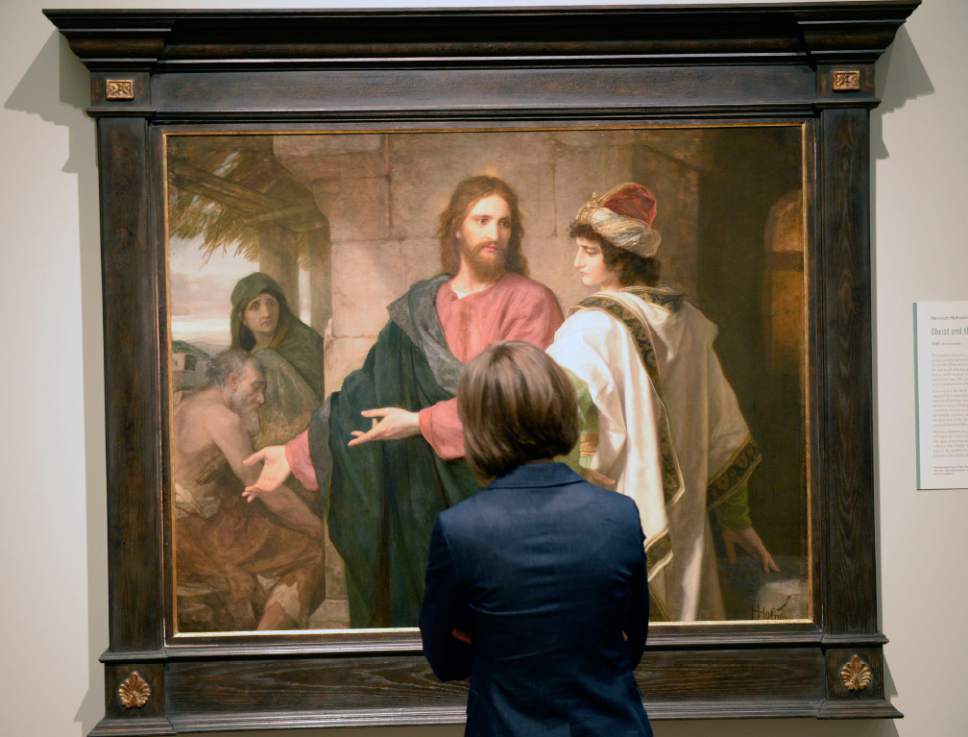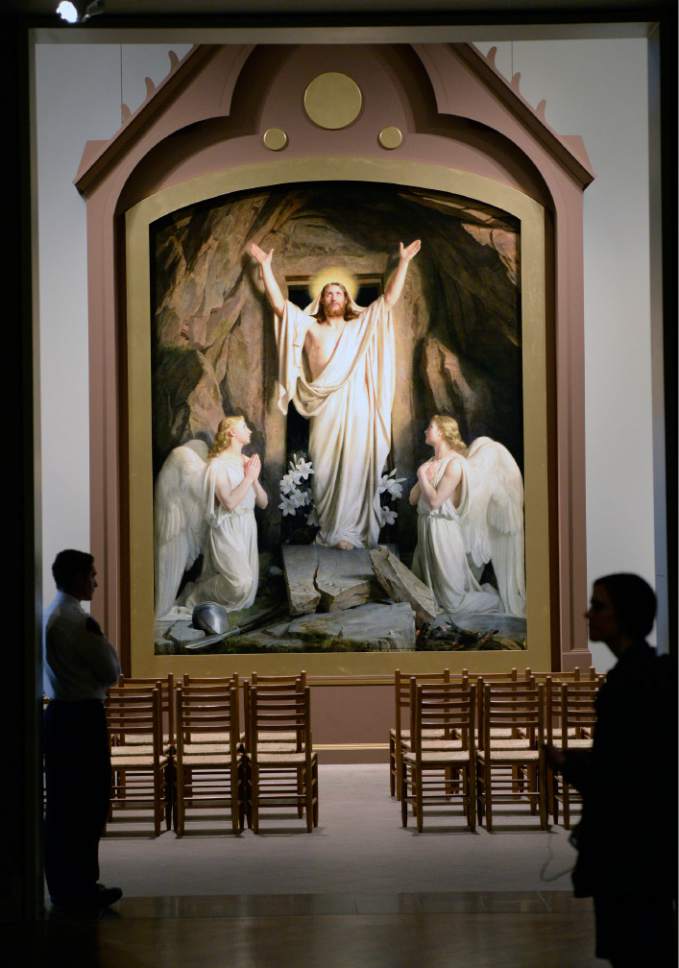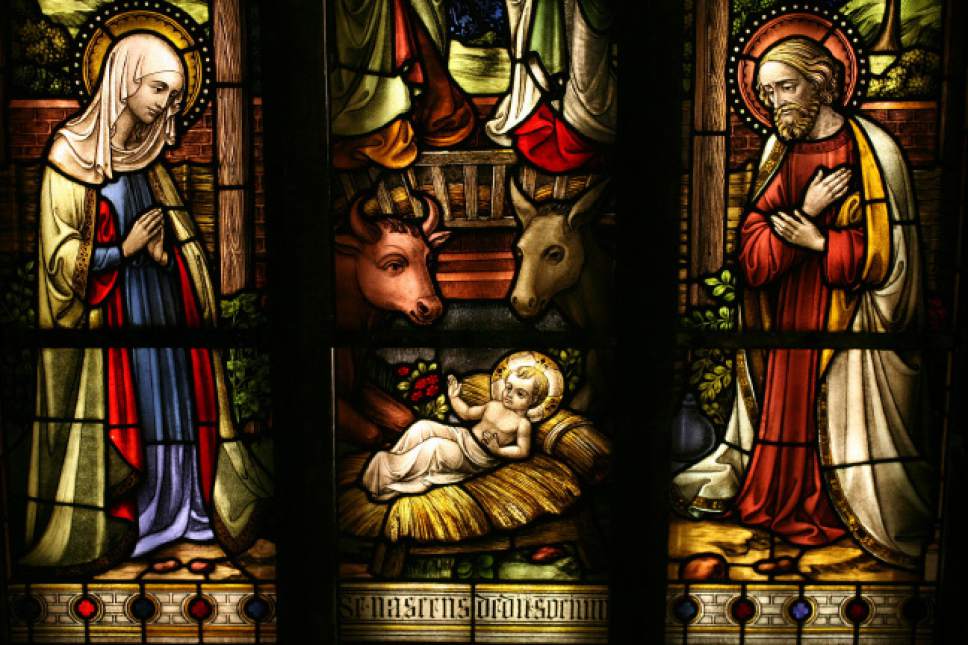This is an archived article that was published on sltrib.com in 2017, and information in the article may be outdated. It is provided only for personal research purposes and may not be reprinted.
With a name like the Jesus Seminar, you might think the enterprise was intended to build faith in the Christian savior.
You would be wrong.
It was the brainchild of the late Robert Funk, who assembled more than a hundred biblical scholars twice a year starting in 1985 to discuss, debate and decide what Jesus actually said or did.
The whole endeavor was anything but devotional.
Participants cast their votes via colored beads — red meant Jesus undoubtedly said or did something commonly attributed to him; pink suggested he probably said or did something like it; gray argued that he didn't say or do it, but the idea was close to his own; and black meant Jesus did not say or do it but the account was rather a perspective from another time or tradition.
Their collective conclusions? Jesus was not born of a virgin, was not resurrected, did not walk on water. He was, however, baptized by John and did tell followers to "turn the other cheek."
In fact, they determined that 82 percent of the reported preachings were not authentic.
By debunking some of the most known and loved New Testament passages, the Jesus Seminar scholars faced cheers and sneers from nonbelievers and a variety of believers. Still, the exercise launched a worldwide discourse on the reality of the man at the center of Christianity, deliberations that persist to this day.
Now, rather than gathering at the Weststar Institute's headquarters in Oregon, where the seminar is housed, new generations of scholars are sharing their findings across the country.
Next stop: Mormon-dominated, Bible-believing Utah.
This week the Jesus Seminar on the Road will present a two-day conference, "The Changing Story of the Historical Jesus and Early Christianity," on Friday evening and all-day Saturday at Salt Lake City's Westminster College.
It will feature lectures by Nina E. Livesey, religious studies professor at the University of Oklahoma, and Arthur J. Dewey, who teaches theology at Xavier University in Cincinnati.
The two will discuss why researchers wanted to examine Jesus apart from traditional Christian beliefs, what methods they used, and why it matters.
They will "tease out," publicists say, "the implications of this new research not just for understanding Christianity but for understanding religion more generally."
A Utah organizer, the Rev. Charles Robinson, pastor at St. Luke's Episcopal Church in Park City, celebrates any effort to expand awareness.
It is why he launched a similar project — Utahns for Religious Scholarship — with a handful of like-minded clergy and academics. The mission is to invite scholars to share their research on important religious topics during the past decades.
The Jesus Seminar on the Road is the Utah group's first offering, in conjunction with the Salt Lake Interfaith Roundtable.
"Our vision is to eventually develop a year-round calendar of events," Robinson says, "that includes seminars, lectures and presentations by noted scholars from all of the world's major religious traditions."
He is passionate about doing it, the Park City Episcopal priest says, because "knowing is better than not knowing. …The spiritual path includes a desire for new learning and a willingness to pursue the truth no matter where that may lead."
The "target audience," he says, "is composed of men and women who are curious, who love learning and respect competent scholarship, who delight in new insights and discoveries and who are not threatened by and fearful of scholarship that challenges their 'comfort zone.' "
That describes Robinson's own religious journey.
"Interpreting the Christian tradition through a kind of literalism that requires supernaturalism [does not make] much sense in the 21st century," he says. "I do not think the traditional, more conservative ways of thinking about and interpreting the Bible hold up under rational scrutiny. In both cases, holding to the familiar and comfortable approaches requires that far too much research be ignored and that one remain committed to a pre-modern worldview."
For his part, the pastor says, "I just cannot do that any longer."
Robinson knows that will keep some believers away from this week's lectures.
Many of the devout see faith as "never questioning what you are taught by your religious authorities," he says. To them, "believing it so, makes it so. And for many others, exploration and exposure to new ways of thinking about old ideas are threatening."
Eric Huntsman, a member of The Church of Jesus Christ of Latter-day Saints and professor of Ancient Scripture at Mormon-owned Brigham Young University, does not share the seminar's conclusions, but he is not threatened by them either.
"I attended a larger meeting of the Westar Institute in New York City in 2004 just as I was getting more interested in historical Jesus studies," Huntsman recalls. "It is not fair to presume that all Jesus Seminar and now Westar participants are nonbelievers.
While many of them are nontraditional in their approach to the historical figure of Jesus of Nazareth, almost all of them feel that he is one of history's most significant and influential figures."
Huntsman plans to bring some of his BYU students with him to the Westminster gathering, so that they can be "exposed to some of this kind of thinking and research."
Ever a teacher, the BYU scholar wants class members to "be able to compare the Jesus Seminar approach with more moderate, as well as conservative, Jesus scholarship," he explains. "I plan to review all of the major current approaches, including more 'faithful' approaches before ... the Friday evening session, and we will discuss what we hear afterward."
Speaking personally and not on behalf of his church or school, Huntsman says he tries to keep in mind which Jesus is being discussed.
"Is it the Jesus of history [to the extent that such a figure can be reconstituted], the Christ of faith [who comes to us through scripture and tradition]," he wonders, "or what I would call the Real Jesus [who exists independently of what we know or think of him and who, in my faith tradition, is known primarily by testimony and experience]?"
Reviewing the arguments of scholars and weighing their conclusions, Huntsman says, have helped him assess his own assumptions.
"It frequently brings new evidence to the table for me," he says, "which makes my own admittedly more faithful approach to historical Jesus studies more deep and interesting."
The thrust of all this — and the future discussions of Utahns for Religious Scholarship — is to broaden Utah's exposure to these ideas. That will "increase tolerance and appreciation," he says, a benefit all believers can embrace.
Twitter: @religiongal —
Let's talk Jesus
What • Jesus Seminar on the Road, "The Changing Story of the Historical Jesus and Early Christianity."
Where • Westminster College, Gore Auditorium, 1840 S. 1300 East.
When • Friday, 7:30 p.m.; Saturday, 9:30 a.m. to 4 p.m.
How much • Tickets range from $20 to $75. For more information, go to westarinstitute.org/upcoming-events-calendar.







